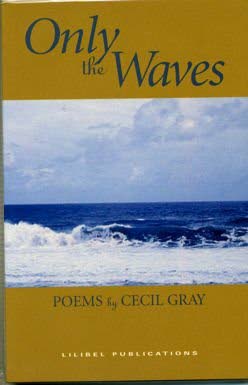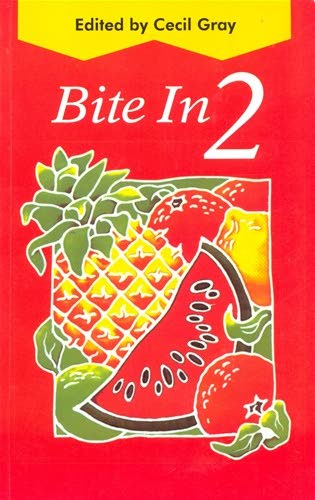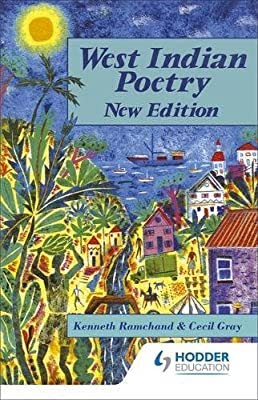Cecil Gray passes on love of poetry to Caribbean students

Ken Ramchand pays tribute to Trinidadian poet and educator Cecil Gray who passed away in Toronto, Canada on March 14. Gray's works include the English for Life and Bite In textbook series. He was 97.
“He stands outside the fencing looking in.” (the first line of Caribbean Journal)
My friendship with Cecil Gray (1923-2020) began at the Mona campus of UWI in early 1970.
I know he was nearly a hundred years old, but it is hard to digest the passing of a friend, an influence, a teacher of poems and stories, one of our early writers who sang virtually to the end, and one of those who made a West Indian literature possible.
I had read some of his short stories and I knew of his early involvement in Trinidad with short-lived literary groups and with the theatre.
So I was pleased to meet in person this already “historic” figure who was in John Figueroa’s Department of Education, and he would come to my office, which was near to the Education Faculty, to talk under a banyan tree outside my office about getting West Indian literature into the schools.

I don’t think we ever had a Red Stripe or Appleton together at home or at the Senior Common Room. He played tennis, but he never considered me a possible recruit. It was said that women loved him, but he never talked with me about anything other than literature and Trinidad. He was fanatical about reaching out to teachers and students, and that chimed in with my own evangelism.
It was not long before Rex Nettleford’s Extra Mural Office agreed to send us out on missions to schools in Kingston and far out in the rural areas, with Cecil driving through crazy roads flanked by the coolest green. Cecil’s willingness and enthusiasm and his knowledge of Jamaica and the Jamaican school system took us out of the campus and to groundings with teachers and students far from Mona. He was a great teacher of literature, and working with him was delightful learning.
I could be mistaken in remembering that his hair was already growing white when we met in 1970, but for sure he was upright, physically impressive and had a laugh which could sometimes be quite scornful. People said to me that he was a difficult person, and could get vex, but I experienced none of that. He was charming and he had a sense of humour (and picong, which, I too, found was not much appreciated in Jamaica). We had a few arguments about poems, stories and writers but we never quarrelled.
When we worked at his home on the Mona campus, he would sit barebacked at the dining table and behave like a natural Trini. (He had perfect skin and no belly to talk of, and he knew it).
He had a copy of my West Indian Narrative (1966). He loved the map locating the writers in their islands, the photographs that showed children that writers were people like them, and he was professionally interested in the questions at the end for teachers and students.
I knew at once that he would agree to work with me to produce West Indian Poetry (1972), and some of his best qualities as a man and a teacher came out when, at his house in Diego Martin, we worked for years, poem by poem, question after question, on a new edition that was published in 1989.

He was humble, argumentative, innovative, focused on what he thought the teachers and the students would be able to use. He was blunt and no-nonsense, and was quick to pull me up if I started to talk as if I was gallerying in the university.
From time to time he would hand me one of his own poems and we talked about them. I had to override him when he insisted that on principle he could not, as an anthologist, include any of his poems in the new edition.
We remained friends after he removed to Canada and we met when he visited the island at Carnival time.
He couldn’t stop writing poems. He never failed to send a copy of the several books of poems he wrote and self-published in his new country. They were poems of a Trinidadian and they all sounded like the Cecil I admired.
I don’t think I ever sent to him any lengthy comment on his poems. He never reproached me. Some of the poems were dark and I was a little saddened by them, wishing he was here and we could talk about the poems and the feelings behind the poems, and be a comfort to each other. I don’t think I could be myself, living permanently in another country, and I always imagine that my friends (and my beloved children, vain hope) are longing to come back. Every book of his poems brought him home to me, like FaceTime.
At some point I started to read over his short stories (in Bim and other places) and thought how hard it was in his time for talent to believe in itself and grow in these islands.
I asked him to send me what he thought were his best and he did. I look at them now and see a pioneer and a foundation stone. I won’t forget him, but we shouldn’t let him go to an unmarked grave.
Ken Ramchand is Professor Emeritus of English at UWI, St Augustine.

Comments
"Cecil Gray passes on love of poetry to Caribbean students"